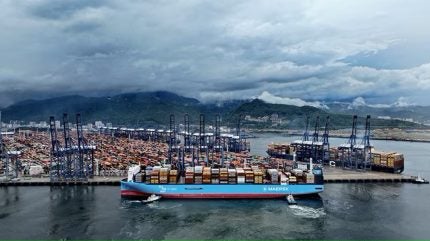
A.P. Moller – Maersk has reached a long-term agreement with Chinese photovoltaics company LONGi Green Energy for the supply of bio-methanol.
This move is expected to reduce greenhouse gas (GHG) emissions from Maersk’s expanding fleet of dual-fuel methanol container vessels.
With the latest deal, the Danish shipping giant looks to meet more than half of its dual-fuel methanol fleet’s fuel requirements by 2027.
Currently, Maersk operates seven vessels capable of running on methanol, with many other methanol projects nearing completion.
Maersk chief operating officer Rabab Raafat Boulos said: “Bio- and e-methanol continues to be the most promising alternative shipping fuels to scale up in this decade, and the agreement with LONGi serves as a testament to this.
“Global shipping’s main net-zero challenge is the price gap between fossil fuels and the alternatives with lower greenhouse gas emissions.”
How well do you really know your competitors?
Access the most comprehensive Company Profiles on the market, powered by GlobalData. Save hours of research. Gain competitive edge.

Thank you!
Your download email will arrive shortly
Not ready to buy yet? Download a free sample
We are confident about the unique quality of our Company Profiles. However, we want you to make the most beneficial decision for your business, so we offer a free sample that you can download by submitting the below form
By GlobalDataThe bio-methanol will be produced from agricultural residues, including straw and fruit tree cuttings.
This sustainable fuel source is expected to comply with the shipping company’s methanol sustainability norms such as at least 65% reduction in GHG emissions compared to conventional fossil fuels.
The first volumes from this agreement are anticipated in 2026, with full production expected by the end of the decade.
Maersk energy markets head Emma Mazhari said: “While we believe that the future of global logistics will see several pathways to net-zero, this agreement underscores the continued momentum for methanol projects that are pursued by ambitious developers across markets.
“China continues to play a pioneering role, and it is encouraging to also see strong market developments in other geographies as well. One example is the US where we are engaging closely with several promising projects.”
In August this year, Maersk launched a 225,000m2 logistics park at Jeddah Islamic Port, which is its largest in the Middle East region.



